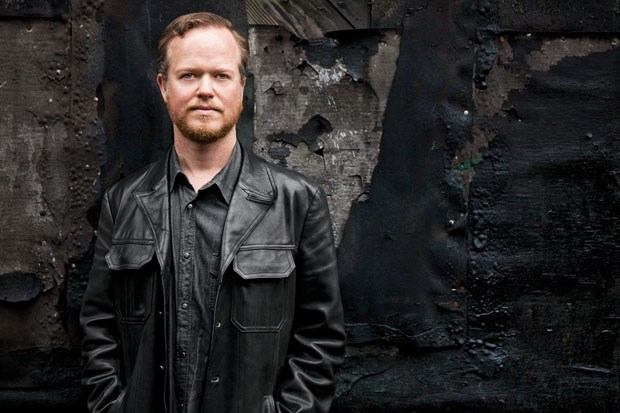The Black Hen Travelling Roadshow Revue featuring Steve Dawson, Alvin Youngblood Hart, Roxanne Potvin and Russell DeCarle, Blue Shore Financial Centre for the Performing Arts at Capilano University, Saturday, April 2 at 8 p.m. Tickets $36/$33. For more information visit capilanou.ca.
Put a pad of butter in the fridge and it takes on the flavour of whatever's in there with it.
A Steve Dawson record is similarly a product of its environment, taking on inflections, rhythms and twang from whatever vinyl was on the turntable when the songwriter was putting pen to paper.
"Things seep in there," Dawson acknowledges. "You can't really avoid being influenced by stuff that you're enjoying and digging."
His new album, Solid States and Loose Ends, digs deep into Dawson's love of blues, bluegrass, and country.
But while some artists make the same statement with nearly all their songs, statements like: We like Green Day, or I wish I was Mariah Carey; the genealogy of a Dawson song can be a twisted, convoluted thing.
With a mind that doubles as a warehouse of musical history, Dawson's listening habits range from 1920s Hawaiian records to Cuban doo-wop to the Alabama Shakes. He has a blues guitar sound and jazz training, but the Nashville session players give his latest offering a taste of tumbleweed.
"I don't think of it as country, really, but maybe it's sneaking in there without me noticing," Dawson says.
The album is chock-full of bright licks and dark sentiments, with song titles like "Final Words" and "Broken Future Blues."
"I like to keep them a little bit mysterious," Dawson says of his lyrics. "A lot of it's how the words play with the music."
Some of the best lyrics are on "Leave My Name Behind," a piece of pretty, dark blues about getting out of town.
"I'm gonna stop the wind wherever it blows, stow away on the midnight train, and leave my name behind as I disappear," he sings.
Pop music is littered with recording sessions that spanned obsessive overdubs (Queen's "Bohemian Rhapsody"), physical trauma (Def Leppard's drummer lost his arm during the recording of the Hysteria album), and decades of musical perfectionism and drug-addled emotional turmoil (Brian Wilson's near 40-years-inthe-making Smile album). While there may be a musical one per cent that still can afford months in a studio, most of Dawson's new album was done in less than a week.
"There's no need for it to take longer than that if everybody's concentrating and doing a good job," Dawson says. "I think people have got it in their mind that it should take longer to make a record because of the old days when there were giant budgets floating around, and people talk about making a records over two or three months or a year, but that's just not feasible anymore."
Moving faster compels spontaneity, according to Dawson.
"There's little things that happened that there's no way I could've predicted. Those are the things that I like," he says. "The further into this, I like those things more and more and realize that over-planning can sometimes suck the life out of something."
While the songs stayed intact, arrangements altered according to the mood in the room.
"As we play through it and it gets a life of its own, ideas come to mind," he says. "There's no real way to have those ideas unless you're sitting in a room with players, playing through stuff."
When the record is done, vinyl-phile Dawson does his best to let it go, even if it's a little bit painful to see 14 songs get compressed into digital audio.
"It's very convenient for (people), so they like it, but it's a little frustrating I find with anything that compromises the quality of the work that you do," he says. "The digital downloads we try to control the quality of what goes there, but at some point you have to give over to the fact that it gets compromised somewhat, which is too bad."
Dawson is slated to play Capilano University Saturday night. The only digital devices in the room will be brought by the audience.



